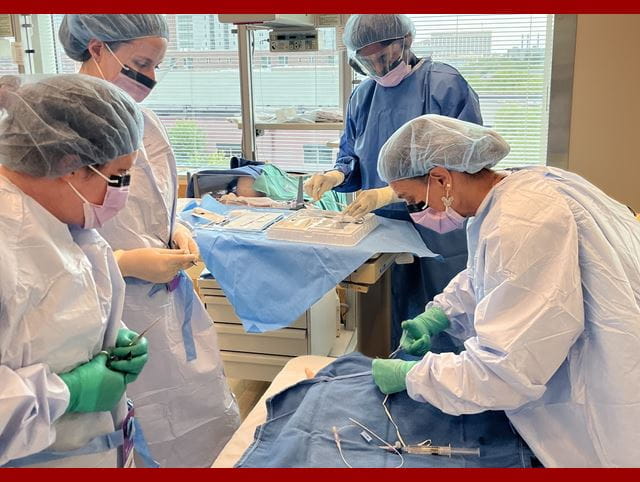
The objectives of the Neonatal-Perinatal Medicine Fellowship curriculum vary by year, commensurate with the experience fellows have gained. Fellows increase their knowledge-base in the first year and participate in management of the team by the third year. Neonatologists who train at Indiana University School of Medicine are prepared to manage any neonatal problem.
Clinical Overview
Fellows rotate through various clinical settings, including a comprehensive Level IV NICU in a referral center, Level III NICUs that care for neonates with more common neonatal problems, a county hospital Level III NICU serving the vulnerable population, and community NICUs—all associated with IU School of Medicine.
Integral to the fellowship training program is fellows’ on-call responsibilities. While on call, fellows supervise pediatric residents, medical students and neonatal nurse practitioners in the NICU, manage patients on Extracorporeal Membrane Oxygenation, and attend high-risk deliveries. Fellows are on call an average of every sixth night throughout the three years of training. An attending physician is on call with the fellow and is readily available for consultation as needed.